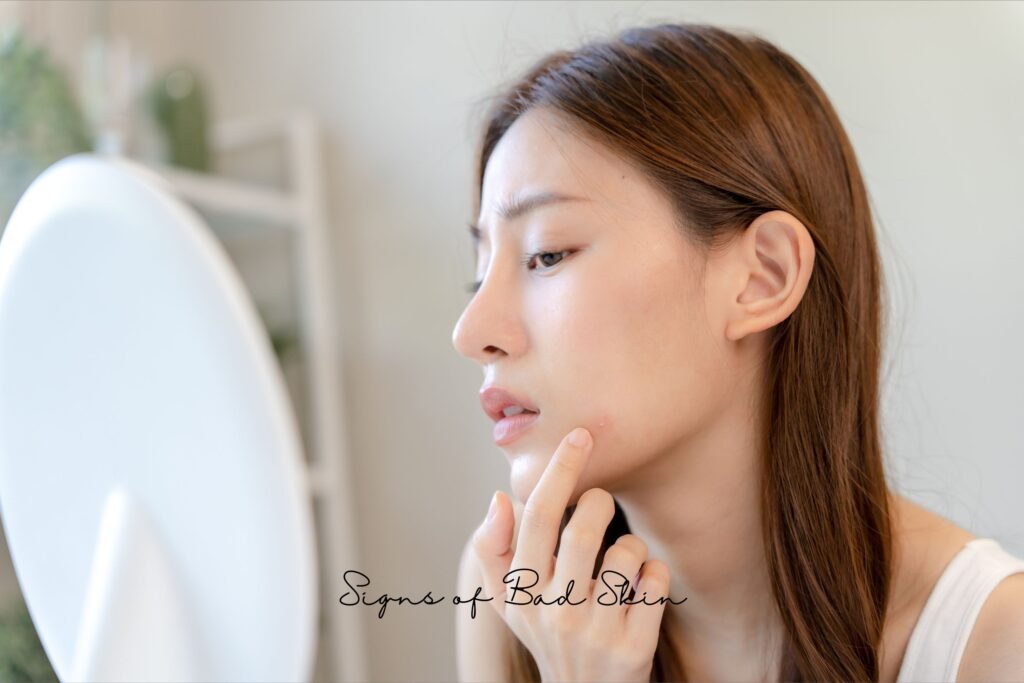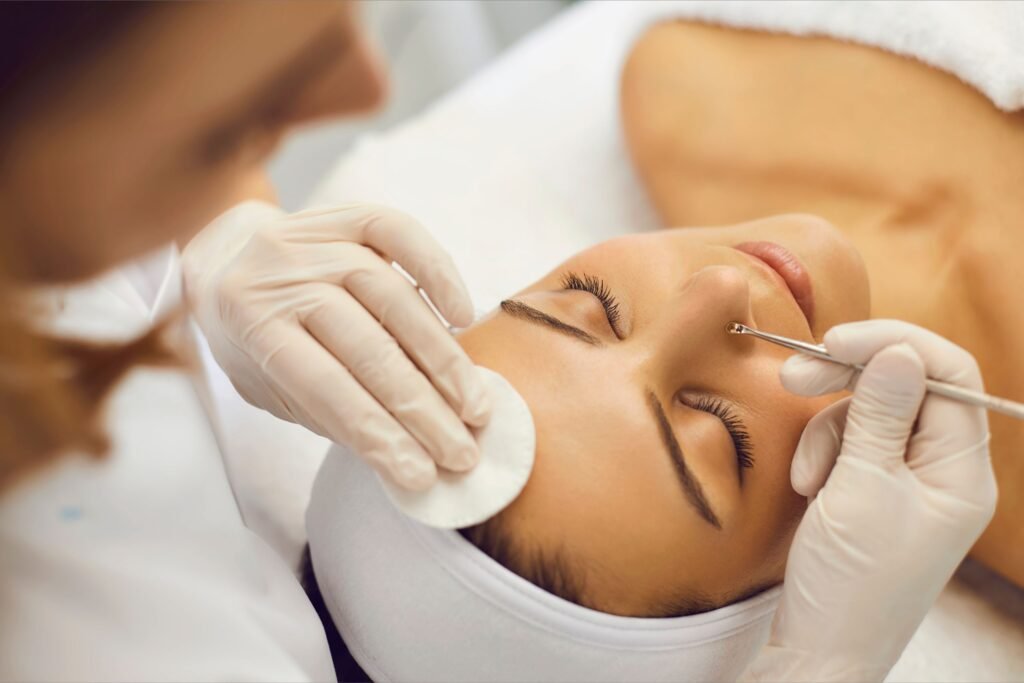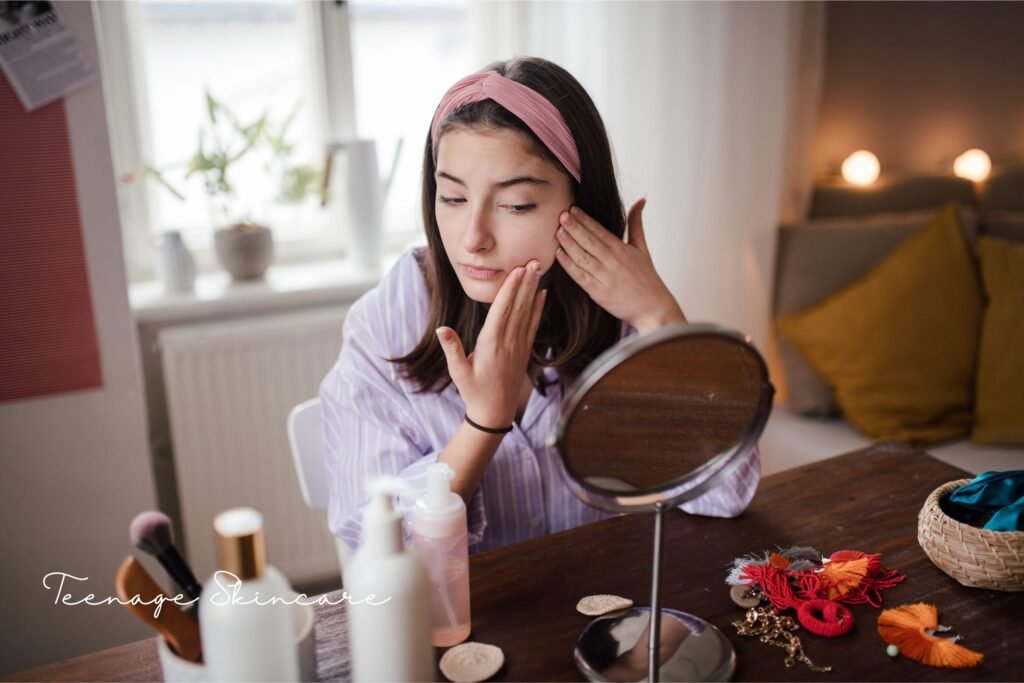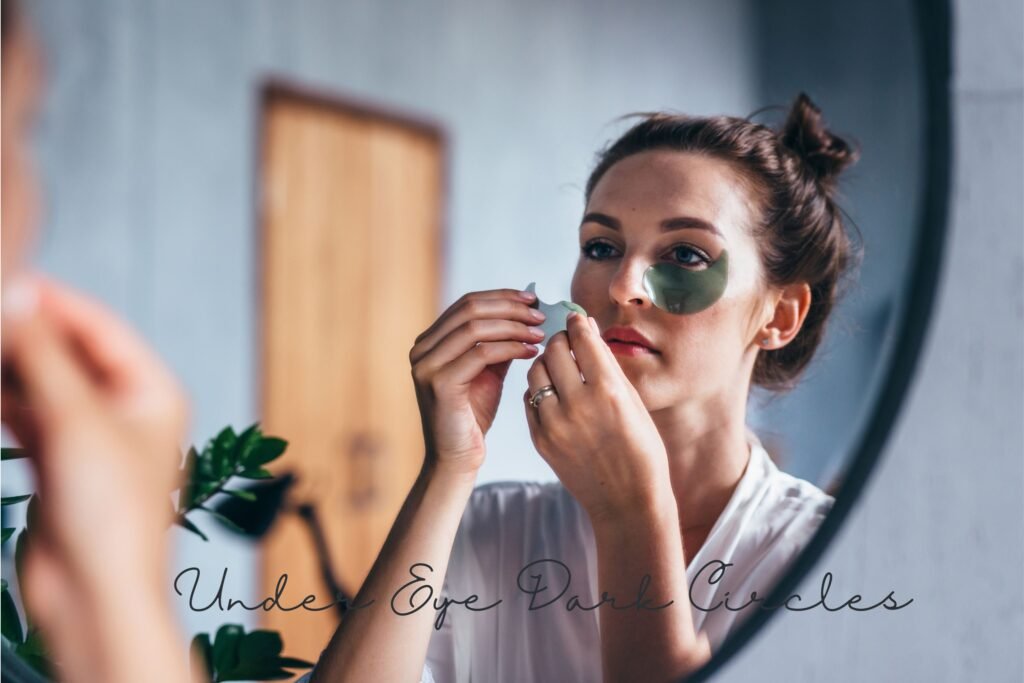If you want to solve any problem, then you must have thorough knowledge about it. Your skin is the largest organ of your body and serves as a barrier to protect against various factors. It protects your internal organs. If your skin shows any signs of problems, such as bad skin, you must take action immediately; otherwise, it will get worse. Understanding what is wrong with your skin enables you to work towards a solution. Having healthy skin can make someone’s day brighter than ever.
Here are some signs of bad skin. If you notice any of these on your skin, learn about possible solutions and visit your dermatologist.
Dryness and Flaking
Dryness is one of the most common skin problems. Dry skin feels flaky, itchy, rough, and tight. It feels like the skin is being stripped off. The cause of dry skin is usually a lack of moisture. When our skin lacks hydration, it often compensates by producing oil. However, for dry skin, it doesn’t produce enough oil, which makes it itchy and flaky.
When applying moisturizer, try to use a generous amount. It will keep your skin hydrated for a longer time. Avoid long hot showers, as they can strip away your skin’s protective layer, making it flaky. Also, avoid harsh chemicals. Stay hydrated by drinking water regularly.
Redness
Redness is another skin issue that can indicate bad skin health. It can be a reaction to allergies, rosacea, or eczema. Redness can also result from irritation caused by skincare products.
Identify the cause that triggers redness. Use gentle skincare products formulated for sensitive skin. Always use a generous amount of sunscreen. Never use any product without consulting your dermatologist.
Acne and Breakouts
Acne is caused by clogged pores filled with dirt, oil, hormonal changes, or bacterial growth. This is a sign of poor skin health that requires attention.
Double cleansing is essential for you. First, use an oil cleanser to remove makeup and dirt, followed by a gentle cleanser to remove excess oil. Avoid heavy, greasy makeup, as it is a common cause of skin buildup. Hormonal acne can indicate imbalanced hormone production.
To address acne, eat a healthy diet, exercise, and consult your dermatologist.
Uneven Skin Tone
Redness, discoloration, and dark spots are signs of an uneven skin tone. This can be caused by hormonal changes, sun damage, or post-inflammatory hyperpigmentation.
Use products infused with Vitamin C, which works against hyperpigmentation and brightens the skin. To prevent sun damage, always use sunscreen. You can also use niacinamide and retinoids to treat discoloration.
Fine Lines and Wrinkles
While fine lines and wrinkles are a natural part of aging, premature wrinkles can indicate poor skin health. If you don’t take proper care of your skin, fine lines and wrinkles are inevitable. Using sunscreen, maintaining a healthy diet, and exercising can help prevent premature aging. Anti-aging products can also help to prevent wrinkles over a longer period.
Products like retinol and peptides are effective against wrinkles.
Excessive Oiliness
Oily skin can lead to a shiny appearance and clogged pores, increasing the risk of acne and breakouts. It can be caused by genetics, hormonal changes, or using the wrong skincare products. Hydrating the skin can help manage oiliness.
Use non-comedogenic skincare products and products containing salicylic acid or benzoyl peroxide to manage oil production. Do not over-wash your face, as this can make it even oilier.
Visible Pores
Visible pores can make the skin appear uneven and unappealing. Makeup won’t sit properly if you have visible pores. Pores can also lead to pimples due to dirt buildup.
Products containing niacinamide or retinoids can be beneficial. Using clay masks can absorb excess oil and tighten pores.
Healthy skin is the foundation of our confidence. Understanding the signs and symptoms early gives you a better chance to treat these issues. Remember, if you are following a skincare routine, be consistent. Otherwise, your skin problems may return.





